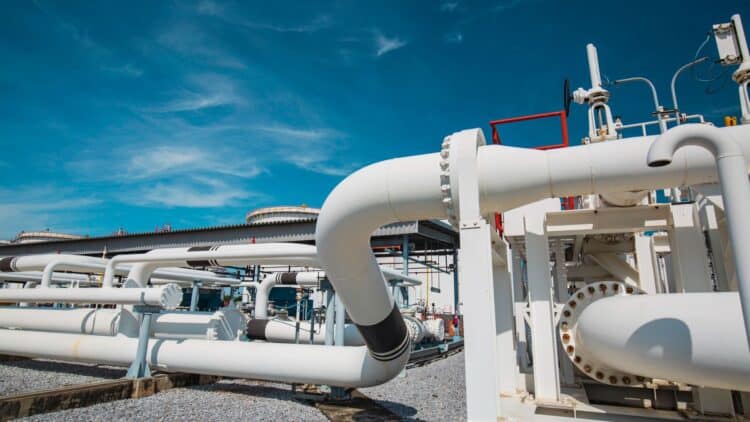Amid the ongoing war between Russia and Ukraine, the European Commission has proposed an unprecedented and historic decision: bringing forward the end of Russian liquefied natural gas (LNG) imports to 2026. This initiative is the nineteenth package of sanctions against Moscow since the outbreak of conflict in 2022 and If approved, it will be the first time in history that the bloc has established a quota for this energy supply.
Brussels seeks to bring forward Russian LNG cuts as a political response
This proposal presented in Brussels is brought forward by about a year the original proposal that foresaw general independence from Russian LNG by 2027. The motivation behind this decision is directly linked to the conflicts led by Russia in its attempted invasion of Ukraine, and the goal of this decision is to reduce the revenues that finance Russian acts of war.
The measure, however, did not come randomly or suddenly. The announcement came shortly after renewed demands from US President Donald Trump, who once again increased pressure on European countries to sever their energy trade ties with Moscow. This characterizes this decision as a geopolitical move as well, demonstrating independence from Russia while simultaneously responding to US pressure.
The main challenge lies in the rule that stipulates that these sanctions must be unanimous among the 27 countries of the bloc, and not all may be in favor of this decision, due to internal interests. Hungary and Slovakia, for example, have already demonstrated resistance, noting that they depend heavily on Russian gas.
Measure affects not only energy, but also cryptocurrencies and parallel trade routes
Although the proposal’s main objective is to directly impact the European LNG market, its impact goes beyond the energy sector. The European Commission also intends to affect Russian banks by closing loopholes for cryptocurrency transactions and attempting to prevent negotiations with other countries that facilitate military trade.
Another goal is to tighten restrictions on special economic zones in Russia, which provide tax incentives to attract foreign investment. If the proposed measure is approved, European companies will be banned from operating in these locations. Also included on the list are stricter controls on Asian companies — including Chinese ones — accused of helping Moscow circumvent embargoes.
Overall, the package is broader than it appears and aims to restrict the devices used by Russia to keep its commercial contribution functioning despite all the sanctions.
Europe is racing against time to diversify its energy matrix by 2026
The idea itself represents an effective measure to curb one of Russia’s strongest trading points, but the question remains: how does Europe intend to meet this demand, knowing that Russia still accounts for about 14% of the bloc’s LNG imports?
The answer may lie on the other side of the world, with the United States being one of the most likely suppliers to fill the gap left by Russia in the future. But this raises new questions: increasing dependence on Washington at a time when the White House is using tariffs and trade measures as instruments of political pressure.
Russian LNG ban will test EU’s ability to maintain energy independence
In addition to the possibility of importing LNG from other sources, the demand for new sustainable energy routes is expected to increase. Investments in hydrogen, renewable energy, and new partnerships with African and Middle Eastern countries are alternatives under discussion, but decisions need to be made, as time is short, considering the increase in sanction for next year.
Brussels’ announcement comes as an alternative that could impact how Europe establishes trade relations with Russia and also how its own energy security is assured. If the ban on Russian LNG by 2026 is confirmed, the coming years will test the European Union’s ability to maintain its energy independence in a sustainable manner.


